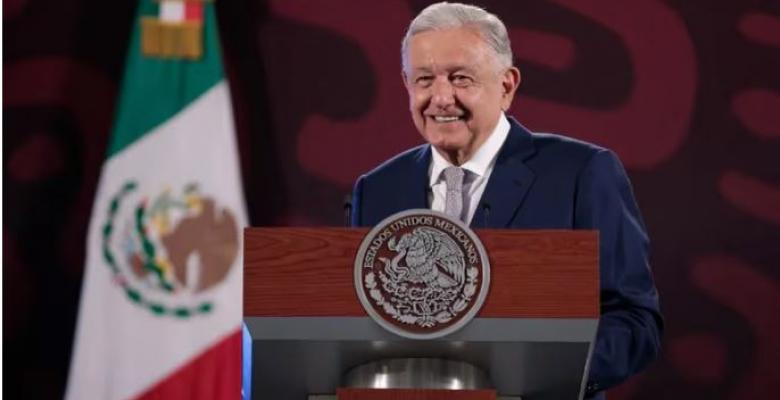Mexico: Presidents without the CIA
especiales

Since the Monroe Doctrine was defined, which stated that America was for Americans, the United States assumed the right to decide on policies in the countries of the continent, by appointing and removing presidents at will, invading countries from which, as in Mexico, they even took away a large part of their territory.
In the nation of the Aztecs, the United States dominated the political arena, imposed the economic agenda and decided on the so-called structural reforms.
What is more, and worse: the entire Mexican presidential structure was not only penetrated by the Central Intelligence Agency, but at least four of the presidents were at the service of the CIA and received hefty dividends.
Without ruling out that the most recent presidents before the outgoing head of state, Andrés Manuel López Obrador, were involved with that agency that uses assassination to eliminate the main opponents of the Empire, it is known that between 1956 and 1969, Winston Scott was director of the CIA station in Mexico, and during that time, he had connections with the high command of the Mexican government, who were on the payroll of the US agency.
A declassified report from the agency states that at least three former presidents of Mexico were on the CIA payroll: Luis Echeverría, Gustavo Díaz Ordaz and Adolfo López Mateos, to which a fourth former president is added, according to an investigation by journalist Jefferson Morley.
Scott's superiors believed that Mexican informants charged too much for services that left much to be desired, which cost the American spy his job after the 1968 student revolts in Mexico and the repression by the Díaz Ordaz’s government.
Scott expected his friends to give him accurate reports on the situation, but instead he received the justification that "they had to act because foreign communists were influencing Mexican youth." Scott would later learn that the weight of such interference was null, and that the demonstrations were due to a society that was looking for spaces for free expression in the face of an authoritarian regime.
AMLO STOPPED IT
With Andrés Manuel López Obrador coming into the Mexican office, with the traditional parties that hindered his popular rise defeated, a new transformation began that strongly hit the neoliberal, neo-Porfirista, anti-popular and sell-out politics that led to the crisis and decadence of Mexico.
In the current stage, in which AMLO will hand over power to Claudia Sheinbaum, - a gifted disciple - the United States has multiplied its interference in the neighboring country, in addition to not preventing its weapons manufacturers from continuing to supply drug cartels, which enters abundantly into North American territory.
To top it off, the several constitutional changes that AMLO will submit to Congress - where his MORENA group has a majority - have also been the object of US interference, specifically those referring to the judicial area.
For the U.S. ambassador in Mexico, Ken Salazar, the election of judges through popular vote could put the functioning of Mexican democracy at risk.
The diplomat pointed out that the proposal could affect that "bond of trust" between investors and the Mexican government.
In this regard, the Mexican Ministry of Foreign Affairs rejected the interference of the American ambassador, while AMLO pointed out that "lately there have been (...) acts of disrespect to our sovereignty, such as this unfortunate, imprudent statement by Ambassador Ken Salazar."
"Of course I support what the Ministry of Foreign Affairs announced, because we do not accept interference, we do not accept that any representative of foreign governments intervenes in matters that only correspond to us, Mexicans, to resolve, to settle." And he pointed out: "I hope that this does not happen again."
The president-elect, Claudia Sheinbaum, described as contradictory the words of Ambassador Ken Salazar that the election of judges puts the country's democracy at risk, when in the United States the majority of states choose their judges at the polls.
"First of all, we are a sovereign country and second, we must remember that in 43 of the 50 states of the United States, judges are elected democratically. They are elected by the people; so it is contradictory for him to say that democracy will be affected when in his own country the judges of the states are elected.
“I do not want to enter into further debate with him, we respect his position, but we do not agree and it is very important that we see what is happening in the United States,” explained Sheinbaum.
Translated by Sergio A. Paneque Díaz / CubaSí Translation Staff













Add new comment